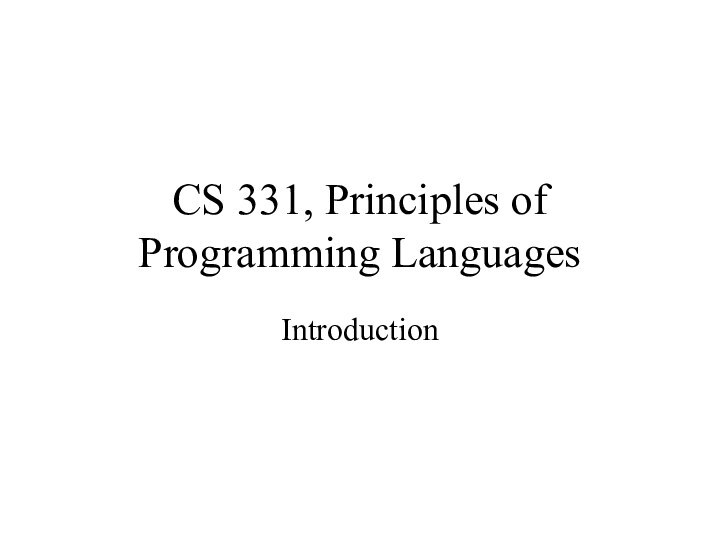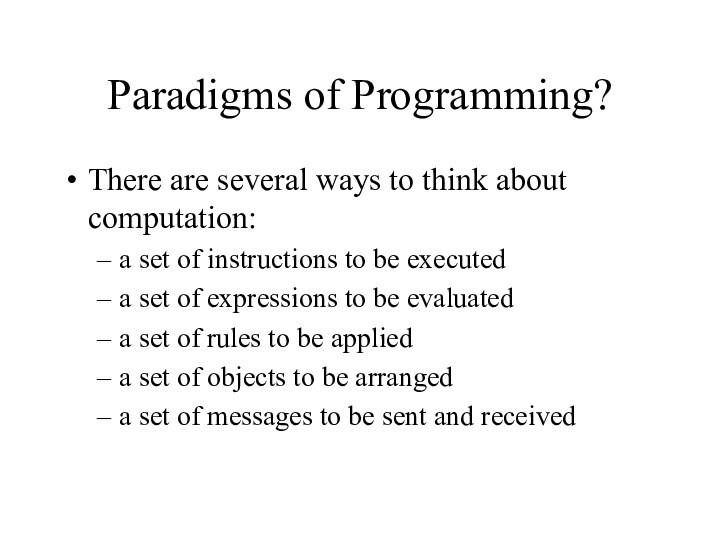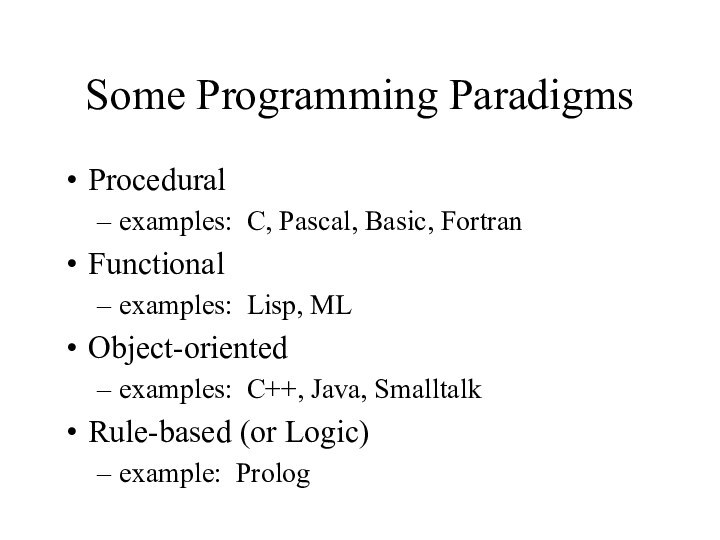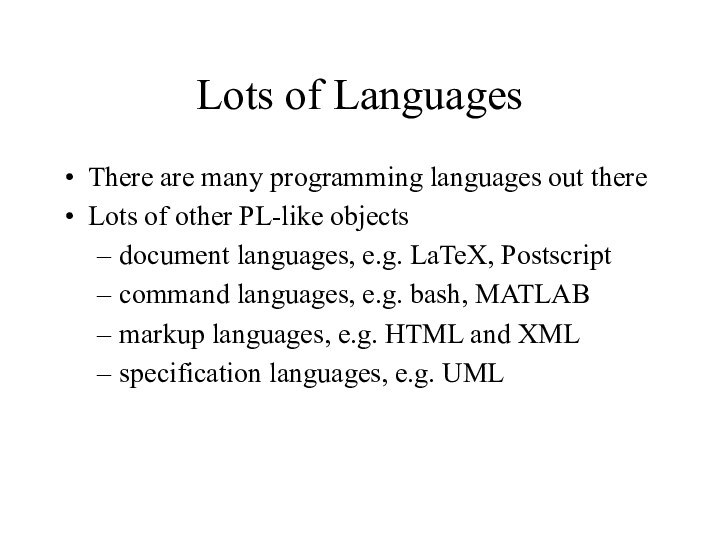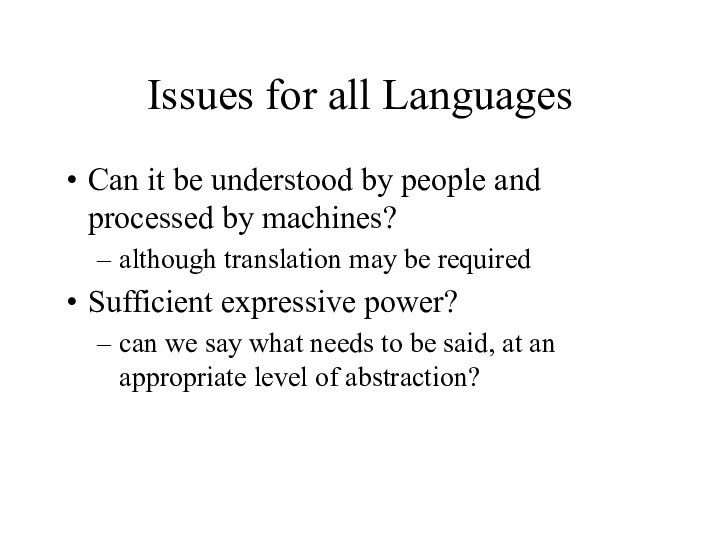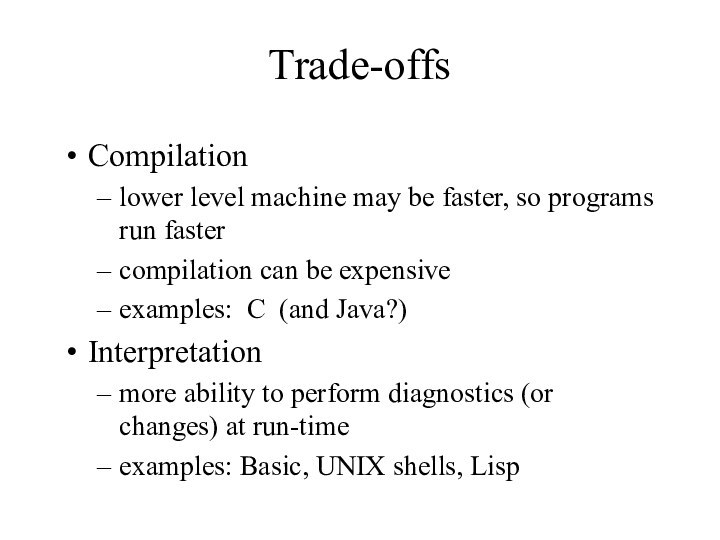one language pretty much like another? No!
To gain experience
with these paradigms by using example programming languagesTo understand concepts of syntax, translation, abstraction, and implementation
FindSlide.org - это сайт презентаций, докладов, шаблонов в формате PowerPoint.
Email: Нажмите что бы посмотреть
